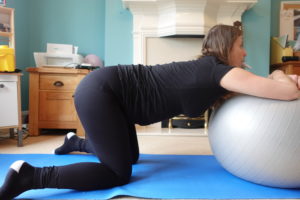A prolapse is a condition where organs fall down or slip out of place.
Types of prolapse
 If it affects the front of your vagina, it is an anterior prolapse (cystocele). The bladder bulges into the front wall of the vagina.
If it affects the top of your vagina, it is a prolapse of uterus or of cervix (hysterocele).
And if it affects the back part of your vagina, it is a posterior prolapse (rectocele or enterocoele). The bowel bulges forward into the back wall of the vagina.
Sometimes you can have more than one prolapse. For instance, you can have a cystocele and a rectocele.
To know how severe your prolapse is, a number system is used, ranging from one to four, with four indicating a severe prolapse.
If it affects the front of your vagina, it is an anterior prolapse (cystocele). The bladder bulges into the front wall of the vagina.
If it affects the top of your vagina, it is a prolapse of uterus or of cervix (hysterocele).
And if it affects the back part of your vagina, it is a posterior prolapse (rectocele or enterocoele). The bowel bulges forward into the back wall of the vagina.
Sometimes you can have more than one prolapse. For instance, you can have a cystocele and a rectocele.
To know how severe your prolapse is, a number system is used, ranging from one to four, with four indicating a severe prolapse.

What are the symptoms ?
- Sensation of a bulge or something coming down or out of the vagina, which sometimes needs to be pushed back
- Problems passing urine – such as slow stream, a feeling of not emptying the bladder fully, needing to urinate more often and leaking a small amount of urine when you cough, sneeze or exercise
- Discomfort during sex
- Some women don’t have any symptoms..
What are causes of Prolapse?
Prolapse is caused by weakening of tissues that support the pelvic organs. Although there’s rarely a single cause, the risk of developing pelvic organ prolapse can be increased by:- your age – prolapse is more common as you get older
- childbirth, particularly if you had a long or difficult labour, or gave birth to multiple babies or a large baby – up to half of all women who have had children are affected by some degree of prolapse
- changes caused by the menopause – such as weakening of tissue and low levels of the hormone oestrogen
- being overweight, obese or having large fibroids (non-cancerous tumours in or around the womb) or pelvic cysts – which creates extra pressure in the pelvic area
- previous pelvic surgery – such as a hysterectomy or bladder repair
- repeated heavy lifting and manual work
- long-term coughing or sneezing – for example, if you smoke, have a lung condition or allergy
- excessive straining when going to the toilet because of long-term constipation



